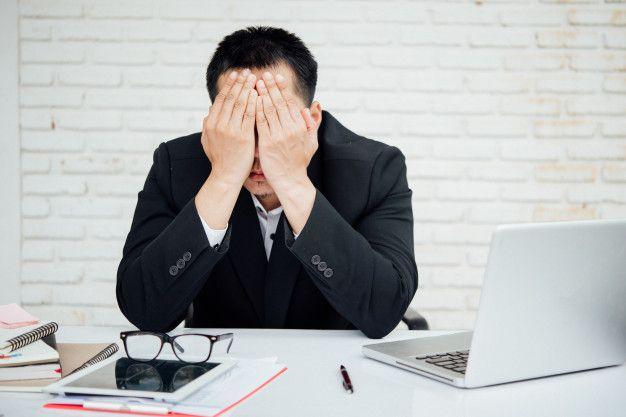Combat Anxiety and Depression with These Strategies

Entrepreneurs are not strangers to anxiety and depression. They’re just as susceptible as the rest of the population, if not more so, to mental illnesses such as bipolar disorder, sociopathy, schizophrenia, and more. I have written here on Entrepreneur about my problems with anxiety, especially while networking.
May is National Mental Health Awareness Month in the U.S., so let’s look at some statistics. A 1997 Canadian study of self-employed people versus those traditionally employed found that self-employed folks had significantly higher levels of job stress and mental health issues. More recently, a 2015 study conducted by Dr. Michael Freeman at UC San Francisco found that 49 percent of entrepreneurs who participated said they’d experienced mental illness.
Anxiety and depression disorders are on the rise. Generalized anxiety is common, as are social and specific phobias and panic attacks. If you ignore these, they can escalate into more serious conditions. They can become resistant to first-line strategies such as self-care, changing your self-talk, and grounding techniques.
Dealing effectively with anxiety and depression as an entrepreneur requires a better understanding of mental health generally. You want to know how it can impact you and your business. Here are some strategies for addressing these issues.
Check your attitudes about mental health and anxiety.
Although we’ve made notable strides in recent years toward dismantling the stigma surrounding mental illness, we still have a long way to go. Too many of us have internalized a belief in the myth of mental illness as a sign of weakness.
That stigma can cause a lot of damage. For example, it can prevent people from seeking out and obtaining the medical care they need. That reluctance merely keeps perpetuating the stigma and making it harder for others to speak out when they need help. Fortunately, that stigma is continually being eroded by frank discussion, especially on social media. I also see more balanced coverage of the issue through traditional media outlets.
Mental health is just as critical as physical health for the entrepreneur. If you’re not in a state of good health mentally or emotionally, it’s important to seek medical care. You wouldn’t ignore a broken arm or a lingering viral infection that just won’t go away. For the same reason, it’s important to be proactive when it comes to your mental health.
Understand why entrepreneurs are more susceptible to anxiety and depression.
The very character traits that help fuel our success as entrepreneurs may make us more vulnerable to mental health issues such as depression and anxiety.
Additionally, we tend to find ourselves surrounded by the very environmental factors that make it harder for us to practice good self-care and positive mental health habits. We endure long hours, sleep deprivation, poor nutrition, too much caffeine and too little sleep as a matter of habit. Couple this frenetic lifestyle with cash constraints that can prevent us from seeking mental health care and it’s easy to see why entrepreneurs often face a higher mental health risk.
Recognize the risks.
The mental health of all your employees is important to company productivity and success. Yet it’s undeniably true that when the person struggling is the boss, it’s even more crucial to address the issue promptly with a targeted treatment plan.
For example, narcissistic perfectionists can be dangerous to a business, especially if they’re the owner or CEO. People with this diagnosis are often considered socially toxic, with an overblown sense of entitlement. Their extremely high expectations all make it impossible to please this kind of boss.
So, if this describes you, you may be creating a toxic work environment without being aware of it. Eventually, you could lose your best talent and find it difficult to hire replacements.
Acknowledge how widespread depression and anxiety are now.
One of the most common mental health conditions faced by entrepreneurs is depression. It may seem mild compared to conditions such as schizophrenia or bipolar disorder, but costs $210 billion a year in the U.S. alone.
Depression is marked by a pervasive feeling of fatigue and cognitive difficulties such as focus, memory and decision making. People with depression may experience an overwhelming sense of pessimism and guilt, but depression may also manifest in a constant flatness of emotion. You might experience a significant change in appetite, either an increase that leads to overeating or a complete loss of interest in food. Depression symptoms may also include physical symptoms such as a change in sleep habits, aches, headaches, and muscle cramps.
Depression isn’t feeling sad or down once in a while. If you’re sad for a specific reason, then you may have situational anxiety or depression, which is different from the debilitating, chronic type of depression. That doesn’t mean you shouldn’t seek help for those more acute conditions. Sometimes, a few months of regular counseling sessions provide tremendous benefit, even if you’re not struggling with a chronic condition such as clinical depression.
Know your options.
Regardless of your specific symptoms and concerns, you have many options you can turn to for help. Most people first explore traditional counseling and therapy. If that’s not convenient, you may want to explore online counseling from a service such as Talkspace, BetterHelp and Breakthrough.
You may also want to research the roles that nutrition, exercise and other forms of self-care play in maintaining or regaining mental health.
A mental illness diagnosis does not mean your career as an entrepreneur is over. The important thing is to recognize symptoms promptly and get the right kind of help to restore balance and peace to your life.



